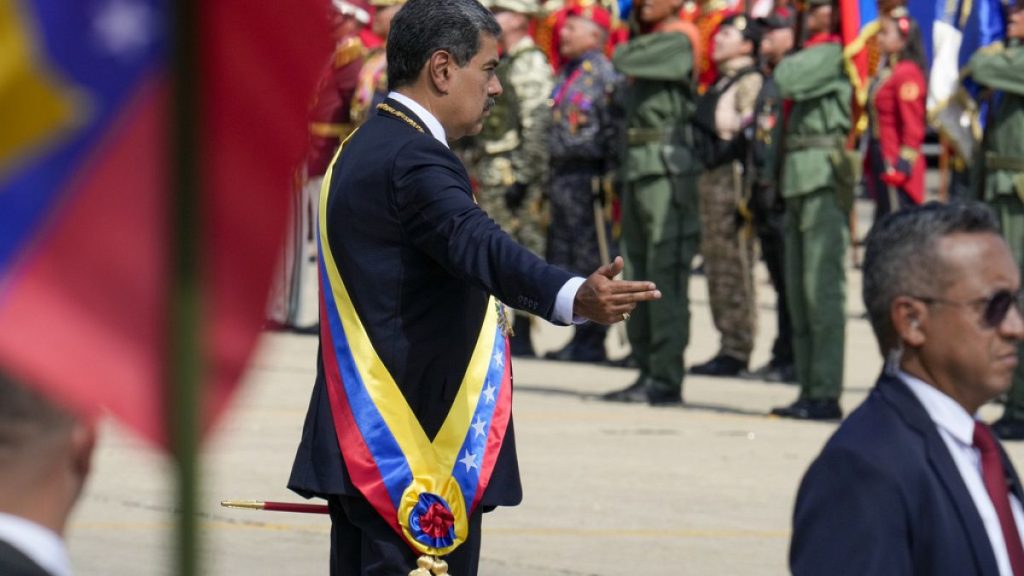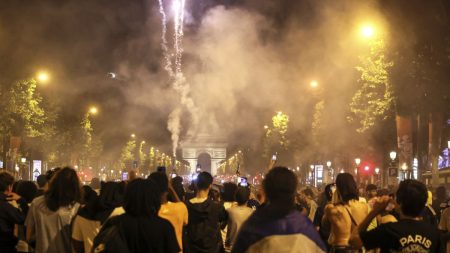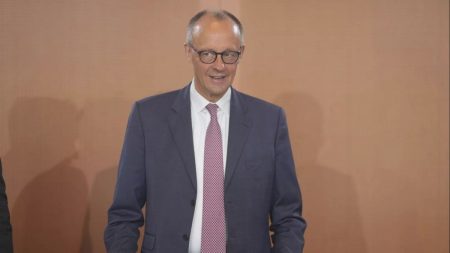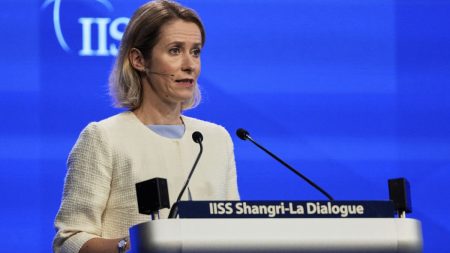The European Union has vehemently condemned the inauguration of Nicolás Maduro for a third presidential term in Venezuela, citing profound concerns about the legitimacy of the electoral process and the ongoing erosion of democratic principles in the country. The EU’s High Representative for Foreign Policy, Kaja Kallas, articulated the Union’s position, stating unequivocally that the announced election results lack verification and cannot be accepted as a genuine reflection of the Venezuelan people’s will. This stance echoes accusations of electoral fraud leveled by prominent opposition figures, including María Corina Machado and Edmundo González, further casting doubt on the credibility of Maduro’s claim to power. Kallas stressed that Maduro lacks the legitimacy of a democratically elected president, highlighting the EU’s unwavering commitment to democratic processes and the rule of law. The EU’s position underscores a deep concern for the political climate in Venezuela, which has been marred by accusations of authoritarianism and the suppression of dissent.
The EU’s condemnation extends beyond mere statements of disapproval. The Union has taken concrete actions to demonstrate its solidarity with the Venezuelan people and to pressure the Maduro regime to respect fundamental human rights and democratic norms. These actions include targeted sanctions against individuals deemed responsible for undermining democracy, the rule of law, and human rights within Venezuela. The EU has imposed restrictive measures on fifteen individuals, demonstrating its commitment to holding accountable those who perpetrate abuses of power. It’s important to note that the EU has carefully calibrated these sanctions to avoid harming the Venezuelan people or the country’s economy, focusing instead on those directly responsible for the political crisis. This targeted approach reflects a nuanced strategy aimed at promoting democratic reform without inflicting further hardship on an already struggling population.
The European Parliament, taking an even firmer stance, has officially recognized opposition leader Edmundo González as the legitimate president of Venezuela. This unprecedented move underscores the Parliament’s deep skepticism towards the Maduro regime and its unwavering support for democratic forces within Venezuela. Both González and María Corina Machado, prominent figures in the Venezuelan opposition, were awarded the prestigious Sakharov Prize for Freedom of Thought last December, further highlighting their commitment to democratic principles and human rights. The awarding of the Sakharov Prize serves as a powerful symbol of international recognition for their courageous efforts in challenging the Maduro regime and advocating for a democratic future for Venezuela. Their recognition by the European Parliament and the awarding of the Sakharov Prize signify a significant moral victory for the Venezuelan opposition and amplify their voices on the international stage.
The EU’s condemnation of the Venezuelan political situation emphasizes the alarming trend of repression and harassment targeting opposition members, civil society organizations, and their families. The Union has called on the Venezuelan authorities to cease these repressive tactics and to immediately and unconditionally release all political prisoners. This demand reflects the EU’s commitment to protecting fundamental human rights and freedoms, including the right to peaceful assembly, freedom of expression, and freedom from arbitrary detention. The EU’s unwavering support for Venezuelan civil society and its condemnation of the ongoing repression underscore the importance the Union places on upholding democratic values and human rights globally. The call for the release of political prisoners represents a crucial step towards restoring a semblance of democratic space in Venezuela, where dissent is often met with harsh repression.
The EU’s comprehensive response to the Venezuelan crisis encompasses diplomatic pressure, targeted sanctions, and vocal support for democratic forces within the country. This multifaceted approach demonstrates the EU’s commitment to promoting a peaceful transition to democracy in Venezuela and its unwavering support for the Venezuelan people in their struggle for freedom and self-determination. The EU continues to monitor the situation closely and stands ready to adapt its response as circumstances evolve. By maintaining pressure on the Maduro regime and providing support to pro-democracy actors, the EU aims to contribute to a future where the Venezuelan people can freely exercise their democratic rights and choose their own leaders through credible and transparent elections.
In conclusion, the European Union’s strong condemnation of Nicolás Maduro’s third term, coupled with its targeted sanctions and vocal support for the Venezuelan opposition, signals a clear message: the EU will not recognize a government that disregards democratic principles and human rights. The EU’s comprehensive approach underscores the importance of international cooperation in addressing complex political crises and promoting democratic values globally. The Union’s continued engagement in the Venezuelan crisis reflects its enduring commitment to supporting the Venezuelan people’s aspirations for a free and democratic future. The EU’s actions, while not without challenges, represent a vital contribution to the international effort to restore democracy and respect for human rights in Venezuela.










